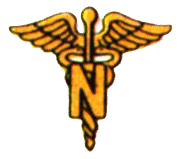
So, you think if I have been in nursing school for three years, I am probably an expert at getting a hang of this student thing.
Studying comes easy for me. All it requires is a large Tim Horton's french vanilla cappaccino, a good comfortable chair (preferably my leather living room sofa) and a lot of patience. And a lot of time. When test time comes, I regurgitate whatever I have learned...word for word from the textbook, or my professor's lecture notes and then, tada! Hopefully, my mark comes back stamped with a big red A.
My biggest problem is, five minutes after the test is written, mostly everything I've learned exits my brain. And if I don't continue to think about the lecture material, or if it is not applied to any of my subsequent courses...it is erased forever. Which is really scary because: A. I need this information to be a good nurse (which is the most important reason, of course) and B. I need this information to pass my RN exams (which is also a pretty important reason as well). Last summer, I almost had a heart attack when I realized I didn't really remember what the function of the liver was. What patient wants a nurse who doesn't know what the liver does?
Most people don't understand the volume of knowledge a nurse must have to practice her jobs. It seems like each of my courses try to condense and squeeze pages and pages and pages of information and dump it into our minds as quickly as possible before our three month semester has ended. And then, two years later, when my clinical instructor asks "So Laura, how does heart failure interfere with the afterload and preload of the heart?", I'm supposed to spit it out two seconds later. I think I am going to buy a NCLEX book, and review it a little bit every day, and hopefully it will jog my memory back to a lecture I had on dilated cardiac myopathy three years ago.
On a random note, I was studying chest tubes for my upcoming clinical on thoracic surgery. Chest tubes act as a one-way valve to remove air or fluid. The patient should avoid lying on the tubing, and the nurse should ensure patency of the tube by assessing for kinks. The nurse should document the amount and color of chest tube drainage. Assess the patients respiratory status often. The water level in the seal should rise with inspiration and fall with expiration.
P.S. this tote bag is so cute! I want one.


No comments:
Post a Comment
Thank you! All your comments are really appreciated.